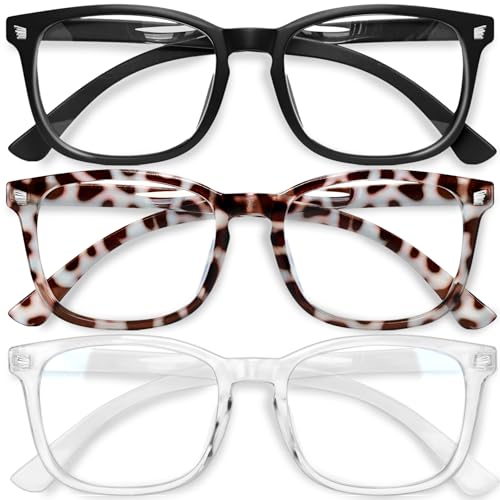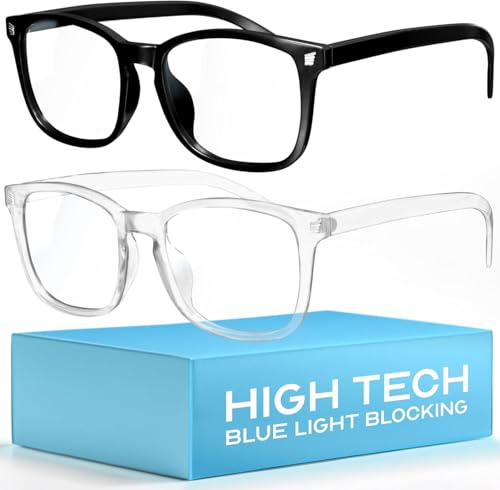I rely on my blue light glasses every day to keep my eyes comfortable while I work or scroll through my phone. But I’ve noticed that smudges and dust can build up fast, making it tough to see clearly and even leaving my eyes feeling strained. Keeping these lenses clean isn’t just about looks—it’s about protecting my vision and making sure my glasses last.
I used to wipe my lenses with whatever was handy, but I quickly learned that the wrong cleaning habits can scratch the coating or leave streaks behind. That’s why I set out to find the best way to keep my blue light glasses spotless and in great shape. If you want your lenses to stay crystal clear and do their job, you’ll want to treat them right too.
Why Proper Cleaning of Blue Light Glasses Matters
Clean lenses on blue light glasses protect my eyes from harmful rays and preserve visual clarity. Dust, oils, and residue, like fingerprints and skin oils, degrade lens coatings and lower their effectiveness. Smudges and debris generate annoying glare, making digital screens tough to see and defeating blue light-blocking benefits.
Correct cleaning maintains the specialized protective coatings that filter blue light. Harsh chemicals and improper cloths, for example paper towels or clothing, erode these layers, reducing the glasses’ performance and shortening their lifespan. Every scratch or streak on the lens scatters blue light and reduces the accuracy of color perception.
Routine, proper care helps prevent eye strain. Dirty blue light glasses don’t block blue wavelengths as efficiently, so the eyes work harder during long device use. With clear, expertly cleaned glasses, I get maximum protection from prolonged screen time and reduce the risk of digital eye fatigue.
Supplies You Need for Cleaning Blue Light Glasses
- Microfiber cloths for blue light glasses
Microfiber cloths lift oils, fingerprints, and dust without scratching anti-reflective coatings. I use dedicated lens cloths from optical shops for my glasses, because paper towels, tissues, or shirt sleeves can grind debris into the surface and create fine scratches.
- Lens cleaning sprays for blue light lenses
Lens cleaning sprays with formulas designed for coated lenses dissolve stubborn smudges safely. I only choose ammonia-free and alcohol-free sprays, since harsh chemicals break down blue light filters and anti-glare layers.
- Distilled water for blue light glasses rinsing
Distilled water removes larger dust particles before wiping, helping me avoid abrasion. Tap water sometimes contains minerals or contaminants that can leave streaks or cause residue.
- Gentle soap for blue light glasses frames and nose pads
Soap with no added moisturizers or strong scents cleans nose pads and earpieces. I pick mild dish soap drops because lotions in soaps and scented formulas sometimes leave films on lens edges.
- Air blower bulbs for clearing dust on blue light lenses
Air blower bulbs, like those used for camera lenses, puff away grit. I gently use one when visible particles rest on my glasses before buffing with a cloth.
- Lens cleaning wipes for blue light glasses travel cleaning
Individually wrapped wipes offer portable, on-the-go cleaning. I keep several in my bag so I can deal with accidental fingerprints and smears quickly.
- Cleaning supplies with blue light coatings in mind
Every cleaning supply I choose protects specialized filters and coatings. Using inappropriate products damages effectiveness and shortens eyewear lifespan.
| Supply | Use Case | Preferred Features |
|---|---|---|
| Microfiber Cloth | Daily lens wiping | Lint-free, soft, washable |
| Lens Cleaning Spray | Removing oil and smudges | Alcohol-free, ammonia-free |
| Distilled Water | Pre-wash dust removal | No minerals, purified |
| Gentle Soap | Washing frames and pads | Unscented, no lotion |
| Air Blower Bulb | Clearing loose particles | Silicone tip, gentle airflow |
| Lens Cleaning Wipes | Cleaning away from home | Individually sealed, safe for coatings |
Every supply helps me keep my blue light glasses performing optimally and maintaining the coatings that protect my eyes.
Step-by-Step Guide: How to Clean Blue Light Glasses Properly
Daily care for blue light glasses preserves their coatings and keeps vision free from distracting smudges. Each step in my routine supports the long-term effectiveness of blue light protection.
Rinsing and Removing Debris
Clear water rinses prevent abrasive particles, like dust and grit, from scratching lens coatings. I hold my glasses under a gentle stream of distilled or filtered water, making sure both sides get a thorough rinse. Particles lift and drift away from the surface in a few seconds. I never start wiping lenses before rinsing, since trapped debris would otherwise cause micro-scratches that degrade blue light filtration.
Applying Cleaning Solution
Specialized lens cleaning sprays, alcohol-free and ammonia-free, dissolve tough oils and fingerprints without damaging protective coatings. I lightly spritz the front and back of each lens, taking care not to oversaturate the frame or nose pads. For those moments away from home, individually wrapped lens wipes offer similar results in a pinch. These formulas maintain optical clarity and the integrity of blue light filters far better than household cleaners or rough paper towels.
Drying and Polishing the Lenses
Microfiber cloths dry and polish without leaving lint or streaks. I use slow, circular motions across the lens surfaces, starting from the center and moving outward. Stubborn spots disappear quickly, and the specialized coatings stay pristine. For final touches, I pay attention to the nose pads and frame edges, making sure no residue remains to interfere with optical performance. Clean, polished lenses guarantee maximum blue light blocking—something my eyes notice instantly during extended screen time.
What to Avoid When Cleaning Blue Light Glasses
- Harsh Chemicals
I never use glass cleaners, ammonia, bleach, or alcohol on blue light glasses. These substances strip anti-reflective or blue light-blocking coatings, leading to permanent lens damage. For example, window sprays and household bleach often contain ammonia.
- Paper Products
I avoid paper towels, napkins, and tissues because their fibers scratch and streak lens coatings. Even single-use wipes not designed for eyewear leave behind residue that reduces clarity.
- Abrasive Fabrics
I only clean lenses with microfiber. T-shirts, towels, and washcloths introduce micro-scratches over time, especially if they’re not 100% lint-free and clean.
- Tap Water Exposure
I steer clear of tap water since minerals can leave spots and streaks, and certain regions have hard water that contributes to cloudy lens buildup.
- Hot Water
I always use lukewarm or room-temperature liquids. Hot water breaks down lens coatings, making glasses less effective at blocking blue light and increasing wear.
- Pressure or Rubbing
I never press hard or use fingernails when removing debris. Excess pressure or aggressive rubbing warps frames and causes lens scratching, which reduces the ability to filter blue wavelengths.
My passion for blue light protection keeps me mindful of these cleaning hazards, since minor missteps decrease the effectiveness and comfort of my blue light glasses.
Tips for Maintaining Clean Blue Light Glasses
- Store carefully
I keep blue light glasses in a hard case or microfiber pouch when they’re not on my face, avoiding dust and accidental scratches from dropping or bumping them against hard surfaces.
- Use dedicated microfiber cloths
I use only high-quality microfiber cloths for cleaning lenses. These cloths lift blue light filter smudges and oils gently, while random fabrics or tissues leave scratches and lint.
- Avoid touching lenses
I handle my glasses by the frame sides. Fingerprints and natural skin oils degrade the effectiveness of blue light coatings and create distracting smudges.
- Rinse before wiping
I always rinse lenses briefly with distilled or filtered water to loosen dust. Wiping dry particles directly across blue light lenses can introduce micro-abrasions that lower lens clarity.
- Clean regularly
I clean blue light glasses at least once daily to tackle everyday buildup from screens and the environment. Clean habits extend the life of blue light filters and optical coatings.
- Check for loose screws
I periodically inspect frame screws because loose hinges can cause misaligned lenses, leading to gaps for dust and affecting blue light protection.
- Avoid extreme temperatures
I shield my blue light glasses from prolonged heat exposure. Heat can irreparably damage anti-reflective coatings and warp polycarbonate or plastic frames.
- Replace damaged cloths or cases
I swap out my cloths and storage cases once they show visible dirt or wear. Dirty materials harbor abrasive particles that compromise lens coatings.
- Clean storage cases
I wipe the inside of cases and pouches regularly. Clean containers keep blue light glasses free of dust, residue, and potential contaminants.
These maintenance steps support visual comfort, preserve blue light filter performance, and make glasses last substantially longer with consistent care.
Conclusion
Taking a little extra care with my blue light glasses really pays off in the long run. I’ve found that when I stick to gentle cleaning routines and use the right supplies my lenses stay clear and comfortable all day.
It’s easy to overlook small habits that make a big difference but I’ve noticed that my eyes thank me every time I clean my glasses the right way. With just a bit of daily attention my blue light glasses keep doing their job and help me feel my best during screen time.












